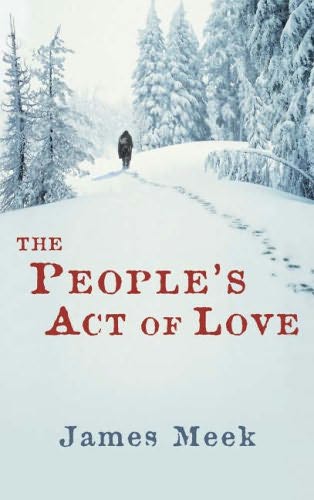 I am quite thankful to be done with this maddening, suffocating, revolting book. I only finished it because I had to read it for a class, and if I hadn't vowed to read fifty books I probably wouldn't have read the whole thing then, either. Here is the plot as best as it can be described: A massive and maniacal person known only as the Dog-Woman fishes a baby out of the Thames and names it Jordan. They live through the rule of Cromwell and Jordan imagines some really dumb crap and tries to pass it off as a narrative. At the end, there is a hastily tacked-on epilogue which tries to introduce a couple of new modern characters and convince us that they are the reincarnations of Jordan and the Dog-Woman, and that that is somehow interesting or innovative.
I am quite thankful to be done with this maddening, suffocating, revolting book. I only finished it because I had to read it for a class, and if I hadn't vowed to read fifty books I probably wouldn't have read the whole thing then, either. Here is the plot as best as it can be described: A massive and maniacal person known only as the Dog-Woman fishes a baby out of the Thames and names it Jordan. They live through the rule of Cromwell and Jordan imagines some really dumb crap and tries to pass it off as a narrative. At the end, there is a hastily tacked-on epilogue which tries to introduce a couple of new modern characters and convince us that they are the reincarnations of Jordan and the Dog-Woman, and that that is somehow interesting or innovative.The whole thing is full of metaphors beat senselessly into the ground:
He called me Jess because that is the name of the hood which restrains the falcon.
Palpable anti-male bias:
5. Men deem themselves weighty and women light. Therefore it is simple to tie a stone round their necks and drown them should they become too troublesome.
6. Men are best left in groups by themselves where they will entirely wear themselves out in drunkenness and competition. While this is taking place a woman may carry on with her own life unhindered.
And a whole bunch of forced images and vignettes that have no connection to any plotline whatsoever, and are only justified through the use of tired and half-baked metaphysical garbage:
OBJECTS 1: A woman looks into her bag and recognizes none of her belongings. She hurries home. But where is home? She follows the address written in her purse. She has never seen this house before and who are those ugly children wrecking the garden? Inside a fat man is waiting for his supper. She shoots him. At the trial she says she had never seen him before. He was her husband.
Winterson is insulting me by placing that last line there; I knew it was her husband. Read the whole thing again but leave off the last line--isn't that much better? Writers like Winterson spend so much time being clever that they come off as if they think they are much more clever than you. And then there's the recycled time is not linear ideas, the liberal self-righteousness, the flat characters, the Faulkner-lite trading off of point of view. This book prides itself on being about ideas, but if these ideas didn't get worn out in the twentieth century, surely Winterson has killed them.
Do not read this book.















